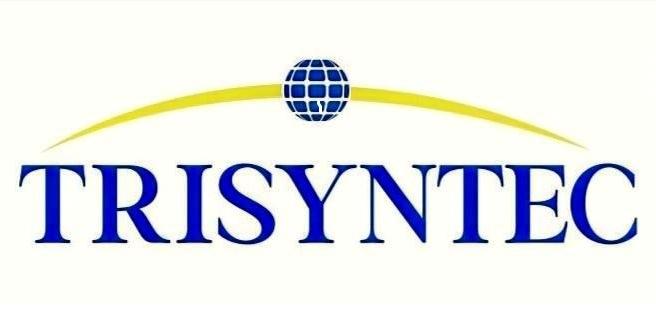
Introduction
As we move through 2024, telehealth emerges not just as a trend but as a cornerstone in the evolution of healthcare delivery, reshaping patient interactions globally. This transformation is not new but rooted deeply in history; in 1874, a surgeon in South Australia telegraphed wound care instructions over 2,000 kilometers, heralding the advent of 'healing at a distance.' Today, these pioneering efforts have evolved into a burgeoning industry with the telehealth market expected to reach $285.7 billion by 2028. This growth reflects a shift towards more accessible, efficient, and patient-centered healthcare, facilitated by advanced technologies. The spike in telehealth investments, with a notable $4.2 billion in early 2021, highlights strong investor confidence in its sustainability and expansion. This sector not only offers innovative solutions to traditional healthcare challenges but also opens up new investment avenues. In this article, we explore three key telehealth trends drawing significant investor interest, illustrating how historical innovations pave the way for modern medical advancements.
Nagaraja Prakasam, Partner at Acumen Fund, India: "For a significant period now, I have been a dedicated member of the Club, a journey that has been both enlightening and enjoyable. What makes the Club particularly captivating for me are the gatherings we have. They serve as a fantastic platform not only to meet fellow investors and create long-lasting, meaningful connections, but also to gain insightful knowledge about the global investment landscape."
.
1. Decentralized Clinical Trials and Remote Monitoring
Decentralized clinical trials (DCTs) are transforming the landscape of medical research by shifting from traditional, site-based studies to more flexible, patient-centered models. This shift allows participants to engage in clinical trials from their homes or local clinics, significantly increasing convenience and participation rates. DCTs facilitate broader demographic inclusion, reaching patients who might otherwise be excluded due to geographical or logistical barriers.
How does it work?
Remote monitoring is a key component of this innovative approach, enabling continuous data collection and engagement through wearable devices and mobile health apps. This technology not only ensures a constant stream of real-time data but also maintains patient involvement and adherence to the study protocol, crucial for the integrity of trial outcomes. Investors and experts recognize the potential of these technologies to revolutionize data collection methods. Decentralized Clinical Trials (DCT) as we know them today began taking shape in 2010. According to a recent survey, 72% of clinical research professionals agree that DCTs could greatly improve data quality by reducing human error and standardizing data collection and analysis processes.
The integration of artificial intelligence (AI) in data analysis further enhances the capabilities of DCTs. AI algorithms can quickly process large volumes of data, identifying patterns and anomalies that might elude human researchers. This leads to faster, more precise conclusions, potentially accelerating the development of new treatments. An example of remote monitoring's impact in the healthcare sector is eSanjeevani, a telemedicine service in India, which has significantly improved access to healthcare for rural and remote areas. By providing teleconsultation services, eSanjeevani has been crucial in identifying life-threatening conditions early and facilitating timely medical interventions. Its flexibility in operation allows it to serve a diverse range of patients, including those in orphanages, old age homes, and prisons, significantly reducing the financial and logistical burden on these institutions.
Dr. Prasun Mishra, Co-Founder at Precision BioPharma, US highlights the dual benefits of this model during a recent Club gathering: "Decentralized clinical trials present significant advantages in improving patient participation and data quality. Remote monitoring, in particular, ensures more accurate data collection and continuous patient engagement, key to the success of these trials." These advancements underscore a pivotal shift in clinical research, promising more efficient and inclusive trials.
Mira Sirotic, Maxwell Biosciences, Canada: "I’ve been an engaged member of this exceptional club for almost two years now and I can say that the experiences here are unparalleled, providing access to a diverse range of opportunities and fostering connections with one of the world’s largest angel investor groups."
2. AI and Remote Patient Monitoring
The landscape of healthcare is rapidly evolving with the integration of artificial intelligence (AI) and wearable technologies, transitioning from traditional episodic care to a model of continuous health monitoring. This shift represents a fundamental change in how health management and preventive care are approached, emphasizing the importance of maintaining wellness rather than merely treating illness. Wearable technologies equipped with advanced biosensors are at the core of this transformation. These devices monitor vital health metrics such as heart rate, blood glucose levels, and other critical biomarkers continuously. Rather than being used solely during periods of illness, these wearables are designed for everyday use, helping to seamlessly integrate health monitoring into daily life. This approach not only aids in chronic disease management but also enhances overall wellness by preventing potential health issues before they develop.
AI plays a crucial role in enhancing the capabilities of remote patient monitoring (RPM) tools by providing personalized care interventions. These AI-driven systems offer customized reminders, tailor educational content to the patient's specific conditions, and dynamically adjust care plans based on the data received. Such personalized engagement has proven to significantly improve medication adherence, thereby enhancing patient outcomes and reducing costs associated with emergency visits and hospitalizations. Additionally, the continuous data collection from wearable devices enables early detection of health alterations, crucial for preempting severe health events. A notable implementation of remote monitoring in mental health is Dr. Susan Elswick’s 100% tele-behavioral health service for children and youth. This service provided vital continuity of mental health support at a time when traditional in-person therapies were largely disrupted.
As noted by Sarper Tanli, Founder at Diginova Health Solutions, UAE at the G.I.L.C. healthcare dedicated investment forum: "We are moving towards remote monitoring for overall health, not just sick care. Wearables and biosensors are pivotal for this, allowing continuous health assessments." This proactive approach to healthcare, powered by AI and wearable technology, is setting a new standard for how health is monitored and managed, making healthcare more predictive, personalized, and preventive.
John H Abeles, Chief Executive Officer at MedVest Group, U.S: "The Global Investment Leaders Club has been an absolute game-changer for me. This exclusive gathering is unlike anything I have experienced before. It offers a unique opportunity for like-minded individuals to come together and form a tight-knit community dedicated to driving innovation and success in the global investment landscape."
3. The Shift in Investment Focus in Healthcare
The landscape of healthcare investments is undergoing a significant transformation, driven by the adoption of hybrid models that seamlessly blend digital health technologies with traditional healthcare services. This evolution is catalyzed by the realization that digital tools can extend well beyond their initial applications in diagnostics to fundamentally enhance healthcare operations and patient care. Hybrid healthcare models represent a paradigm shift towards more patient-centric and cost-effective care solutions. These models integrate digital interventions, such as remote monitoring and AI-driven analytics, with standard healthcare practices, allowing for care delivery that can rival in-person visits in terms of effectiveness for certain conditions. This approach not only broadens access to essential healthcare services but also improves overall patient outcomes by ensuring continuous care and monitoring, particularly for chronic conditions.
Artificial Intelligence (AI) plays a pivotal role in this shift, with its application spreading across various healthcare segments including diagnostics, medical devices, and biopharma services. Reports from industry leaders like KPMG and West Monroe highlight a growing trend in leveraging AI to enhance not just diagnostics but also the operational aspects of healthcare. This broader application of AI is reshaping investment strategies, moving towards models that emphasize efficiency, scalability, and improved patient experiences. According to Sheetal Nariani, CFO at Global Health Impact Fund, US, during a recent healthcare-focused panel held by the G.I.L.C.: "Investors are now favoring hybrid models that combine digital health tech with service elements, utilizing AI not just for diagnostics but to enhance overall operations. This practical application of technology in healthcare is what’s driving more investment." This shift indicates a future where healthcare funding increasingly supports innovations that integrate technology with patient care, suggesting a robust growth trajectory for investments in technology-driven healthcare solutions.
Conclusion
The integration of advanced technologies and innovative care models is setting a new standard in healthcare, promising enhanced efficiency, improved patient outcomes, and expanded access to medical services. These shifts are not only transforming healthcare delivery but are also reshaping investment landscapes, drawing significant capital from investors towards solutions that patient well-being and operational excellence.
As we look to the future, the continued evolution of these trends will play a pivotal role in defining the next era of healthcare, making it more adaptive, inclusive, and effective. The investors' insights shared in this article were gathered during a recent healthcare-focused panel hosted by the Global Investment Leaders Club (G.I.L.C.). To learn more and register for upcoming events, click here.




